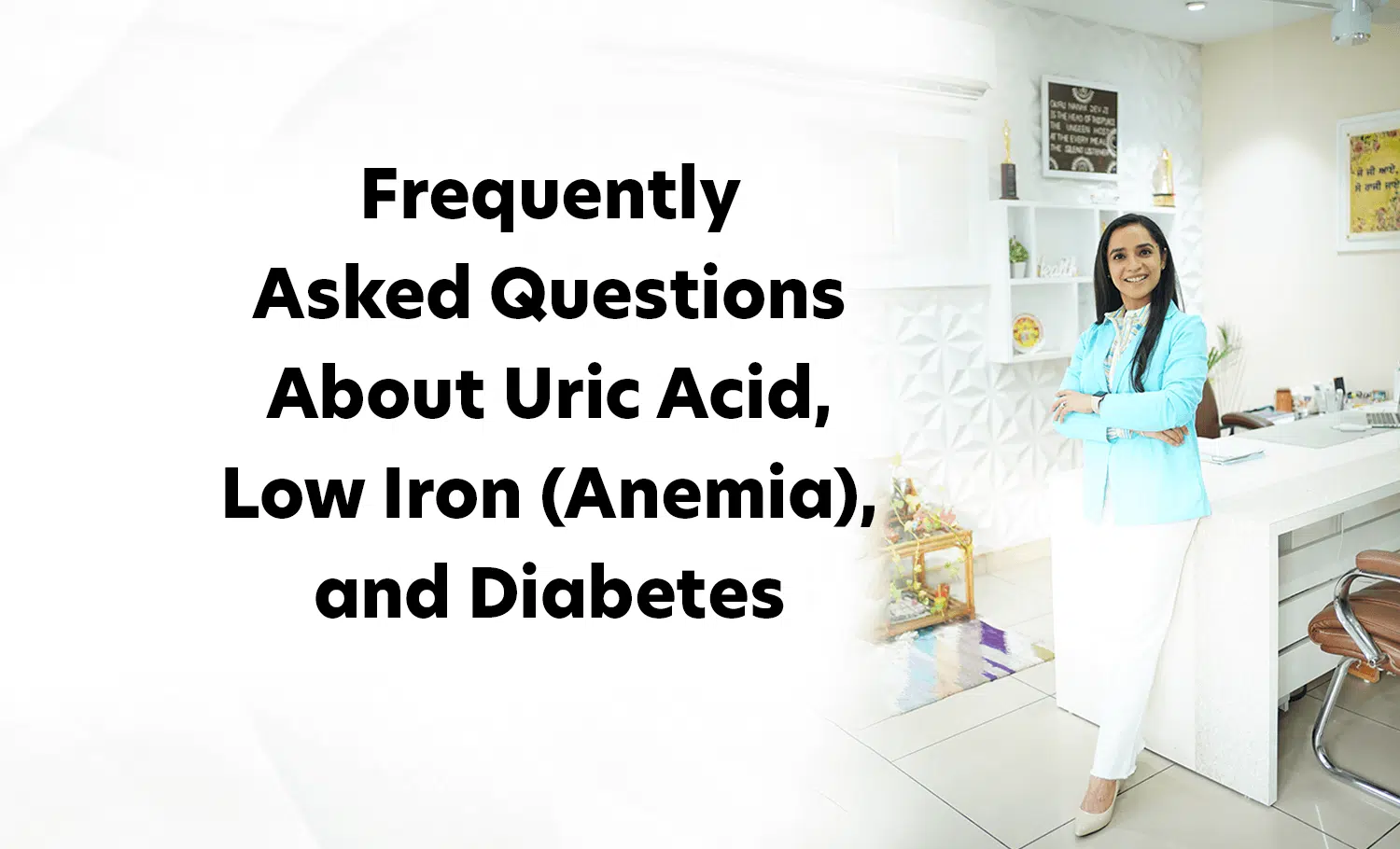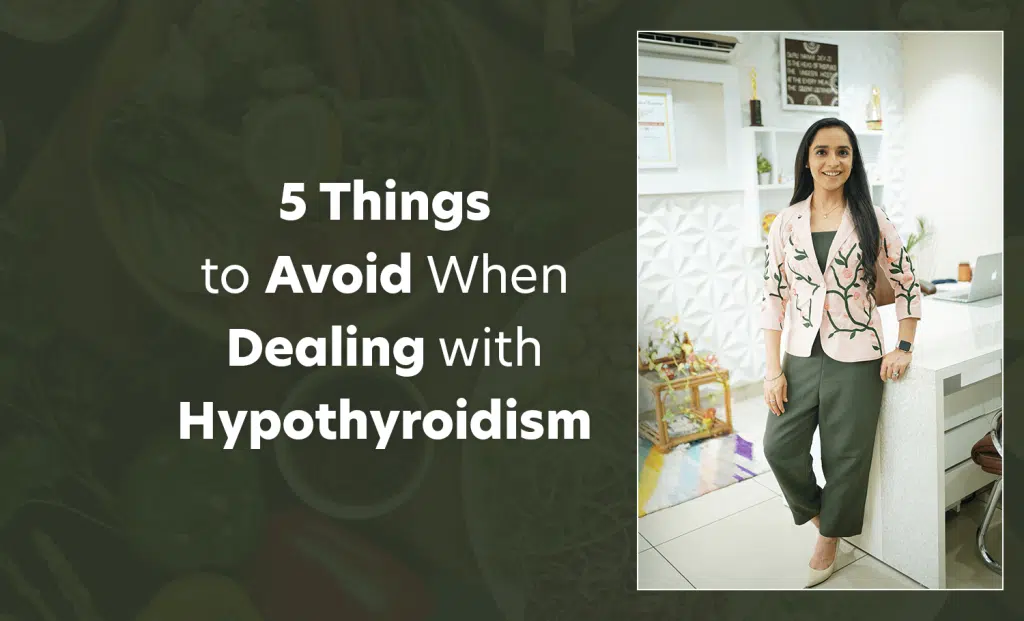FAQ 1: Should I completely avoid protein and dals (lentils) if I have high uric acid levels?
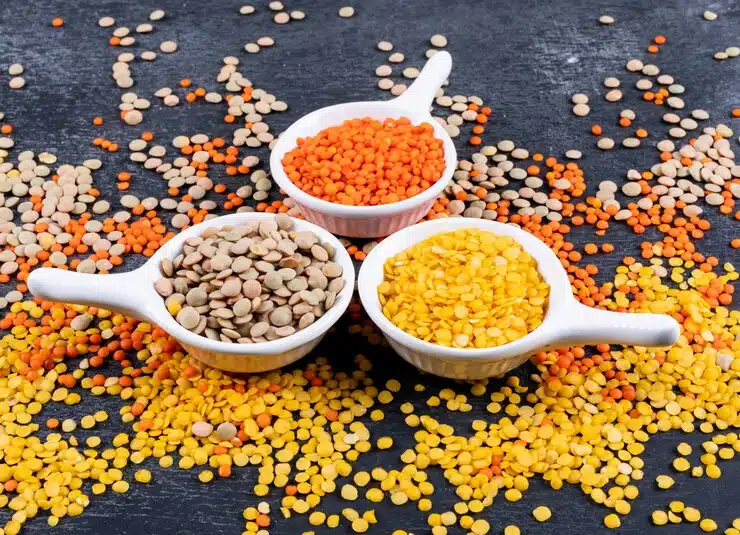
A1: No, you don’t need to completely avoid protein and dals. Uric acid is a waste product that our kidneys remove from the body. It’s naturally present in every individual, and the key is to have a balanced level of uric acid. When uric acid levels increase and crystallize in the blood, it leads to Gout. Many people think you must avoid proteins and dals if you have gout. However, it depends on your uric acid levels and the purine content in your diet. If your uric acid is very high, avoid foods with lots of purines. That means skipping non-veg, high-fructose stuff like juices, processed foods, and certain veggies like spinach, eggplant ( baingan ), mushrooms, cauliflower ( gobi ), French beans, and Taro root( arbi ). Check your uric acid levels before deciding on dal intake. If levels are high and cause Gout, cut back on sabut dals (whole lentils) like Masoor dal and black urad dal. When the uric levels are high avoid Black gram ( chana ), Chickpeas ( chhole ), and kidney beans ( rajma ). But, if your uric acid is at subclinical levels, you can eat these foods in moderation. Try to include lentils in your diet about once a week. It’s essential to work on improving your lifestyle.
In short, there’s no need to avoid dals, proteins, nuts, and seeds for uric acid concerns. They are essential sources of amino acids. Instead, limit purine-rich foods and adjust based on uric acid levels. Focus on long-term lifestyle changes to prevent recurring uric acid increases.
FAQ 2: I get frequent iron infusions due to low iron levels. What should I consider for better iron absorption?
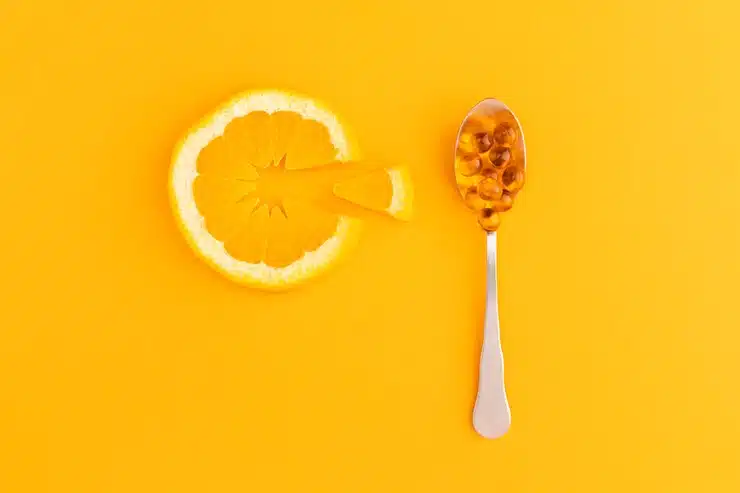
A2: When you need frequent iron infusions, it’s important to
- Make gut health a priority. If you have acidity or constipation, your body may struggle to absorb iron. This is because there aren’t enough helpful gut microbes. So, healing your gut is crucial for better iron absorption.
- When taking iron supplements, don’t take iron and calcium supplements together. They can interfere with each other’s absorption.
- When you take iron supplements, also take vitamin C supplements. It helps your body absorb iron better.
You don’t have to avoid foods like beetroot raita, pineapple raita, and palak paneer. They have iron and calcium, but not enough to impact iron absorption.
So, to boost iron absorption: Focus on gut health. Don’t take iron and calcium supplements together. Try adding vitamin C supplements.
FAQ 3: Is it true that people with diabetes should completely avoid rice, especially for dinner?
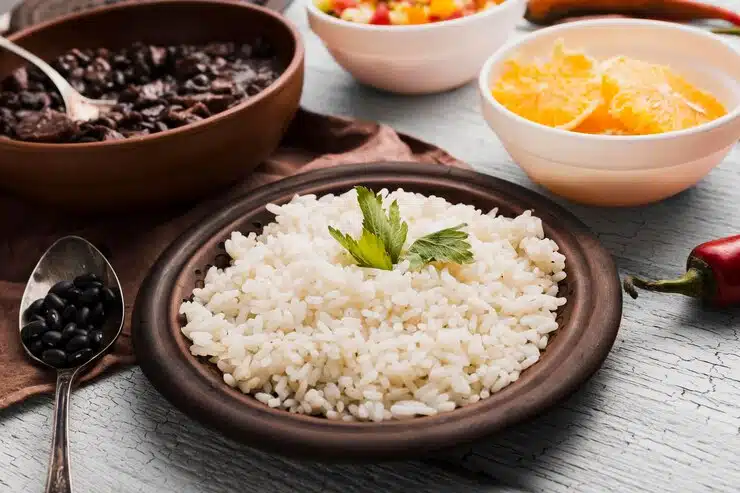
A3: No, it’s not necessary to completely avoid rice if you have diabetes. Instead, focus on when, how much, and in what form you consume rice.
- Timing is crucial. Consume rice earlier in the day, closer to sunset, to better manage blood sugar levels.
- Portion control: Pay attention to the quantity you consume. The serving size should be based on your body’s requirements. It’s essential to eat slowly, chew your food properly, and be mindful of portion sizes.
- Form of Rice: Prepare rice in the form of resistant starch. This involves cooking rice a day in advance and allowing it to cool. Then reheat it the next day at a lower temperature before eating. Add plenty of vegetables to this dish. This method helps maintain a lower glycemic load.
In short, rice need not be completely avoided by individuals with diabetes. It’s essential to have rice before or near sunset. Avoid excessive portions and opt for locally available rice varieties.
CONCLUSION:
I encourage you to break free from these myths about uric acid, anemia, and diabetes. Instead, adopt a holistic approach with the right information and knowledge. It will help to manage these conditions effectively. Understand your individual needs, make informed dietary choices, and maintain a healthy lifestyle. Consulting with a healthcare professional or registered dietitian in India for personalized guidance is recommended for better health.

